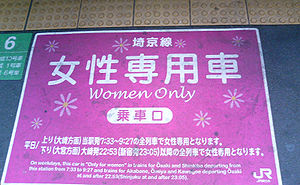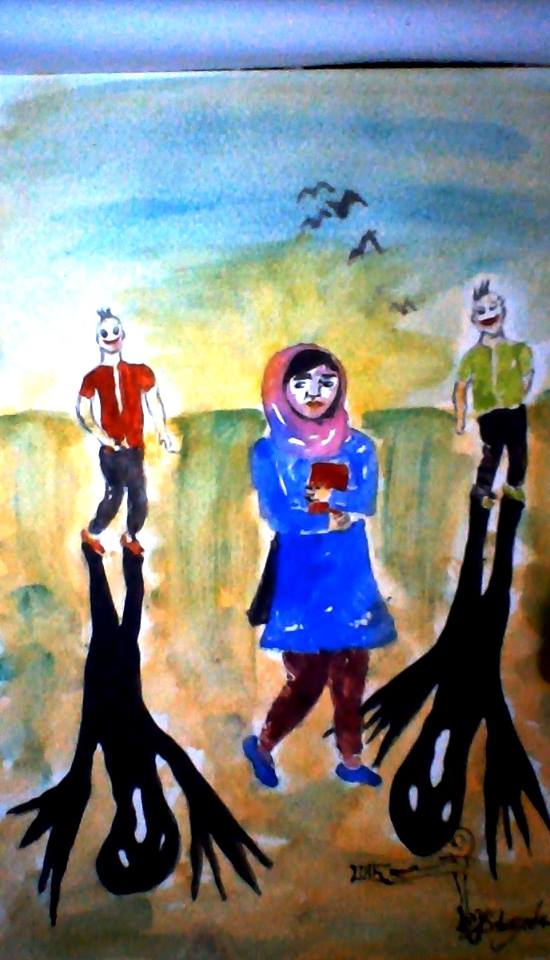Lea Goelnitz, Berlin, Germany, Blog Correspondent
 In more than one dozen countries, women-only public transportation is chosen as a short-term (or mid-term!) solution to street harassment. These countries are as diverse as Japan, India, Brazil, the Philippines and UAE, and offer sex segregated compartments in their trains or subways. In India public buses have benches reserved for women, entire trains for women and a women-only carriage in the Delhi metro. On the platform of the metro stop, the pink sign marks the “safe” area.
In more than one dozen countries, women-only public transportation is chosen as a short-term (or mid-term!) solution to street harassment. These countries are as diverse as Japan, India, Brazil, the Philippines and UAE, and offer sex segregated compartments in their trains or subways. In India public buses have benches reserved for women, entire trains for women and a women-only carriage in the Delhi metro. On the platform of the metro stop, the pink sign marks the “safe” area.
As the latest example of women-only transit, in the beginning of April the Guardian reported that there would be a new women-only rickshaw- service in Pakistan. The founder was fed up with facing daily harassment and now offers safe rides in pink rickshaws. I disagree with celebrating this business idea too much if the reason for the need of such women-only services is not sufficiently seen as a problem. We have to address the root causes.
Although I used to ride in the women-only carriage in Delhi and I guess it created a certain feeling of safety, I always felt like I was being put on display. Having all the women gathered in one space surrounded by men felt awkward. It is frustrating to know that these women-only spaces are a big move away from a gender equal society and from achieving real safety. Through sex-segregation, men do not need to adjust to a society in which women are equal and have the right to be in public spaces. The onus is on women to change.
In addition to women-only trains there are taxi services for women, which are even more widespread. There is SheRides in New York, Cab for Women by Women in Delhi and the Women´s Night Taxi in Hannover, Germany. In Germany there are also women-only parking lots, which are the ones closest to the building.
These interventions and businesses run by women create a safe option for women who otherwise might not go out or who will feel uncomfortable when they are out. As long as politics and culture fail women, this might be the only way to go. On the upside, in most cases it even provides women with economic empowerment. But of course even that is not perfect; the few female drivers may face safety issues as long as they are in the male-dominated space of taxi waiting lanes and rest areas.
Since January one of the major taxi companies in Delhi incorporated women drivers, catering to female passengers as well. This might be a small step forward. At least the men driving for this company will have to get used to having female colleagues.
In order for women to be safe, more women need to be out in public, as passengers and drivers.
Lea works in journalism and women´s rights and is involved in the women´s rights NGO Discover Football, which uses football as a tool for empowerment and gender equality. Follow her on Twitter, @LeaGoelnitz.



